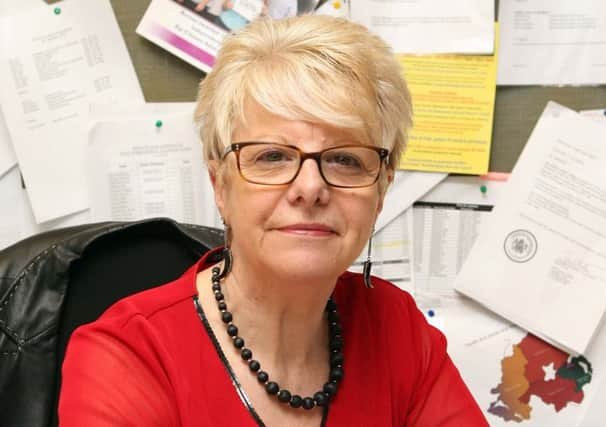Advice: What help should my disabled daughter be getting from her school?


Q: My daughter suffers from a physical disability and I do not feel that I am getting enough support from her school. What should they do to help my daughter settle in to school?
A: Providers of education must not discriminate against students or applicants by treating them less favourably than students who are not disabled, unless they can justify this treatment (see below). This means that education providers must not:
Advertisement
Hide AdAdvertisement
Hide Ad• refuse to offer a disabled student a place because they are disabled, or offer them a place on less favourable terms than a student who is not disabled
• treat a disabled student less favourably in any aspect of educational life including trips, excursions and extra-curricular activities
• exclude a disabled student from school because of their disability
For example, if a school refuses to take a child who suffers from epilepsy unless she stops having fits, this will count as discrimination.
Advertisement
Hide AdAdvertisement
Hide AdIn some cases, an education provider can treat a disabled student less favourably if it can justify this. A school can justify less favourable treatment if it is because of a permitted form of selection. For example, a child with learning difficulties applies to a school that selects its intake on the basis of academic ability and fails the school’s entrance exam. Under these circumstances, the school would be able to justify not offering the child a place.
Making reasonable adjustments: Providers of education must not discriminate against disabled students or applicants by failing to make reasonable adjustments to allow for their disability. If this places a disabled student at a substantial disadvantage compared with students who are not disabled, this will be regarded as discrimination. For example, a deaf pupil who lip-reads is at a disadvantage if teachers continue to speak while facing away to write on a whiteboard.
Making reasonable adjustments includes providing special aids such as equipment and sign language interpreters.
There are some circumstances in which an education provider may be able to justify not making an adjustment for a student’s disability.
Advertisement
Hide AdAdvertisement
Hide AdSchools do not have to make reasonable adjustments to buildings and the physical environment of the school. However, all local education boards must have plans to make their schools more accessible to disabled pupils. Maintained schools, independent schools, and non-maintained special schools must produce their own accessibility plans.
Providers of further and higher education do have to make reasonable adjustments to their premises to allow better access for disabled students. However, issues such as cost can be taken into account when they decide whether an adjustment is reasonable.
Providing for children with special educational needs: All schools must comply with a statement of special educational needs where one has been issued for a child. For example, a school must recruit a classroom assistant or provide information in Braille or audio tape where the student’s statement provides for one. In some cases, colleges of further education must also comply with a statement of special educational needs.
What action can you take about discrimination in education? If you have a child who has special needs, you may be able to complain to the Special Educational Needs and Disability Tribunal. The Tribunal is part of the Courts and Tribunals Service and their website - www.courtsni.gov.uk - has further information on how to bring a disability discrimination case.
Advertisement
Hide AdAdvertisement
Hide AdFor more information about the rights of disabled students at school or in post-16 education and what action you can take if you want to make a complaint, visit the website of the Equality Commission - www.equalityni.org
If you think you or your child has suffered discrimination in education because of a disability, you should talk to an experienced adviser.
• Get free, confidential and independent advice from your nearest Citizens Advice – go to www.citizensadvice.org.uk/nireland or call at: Citizens Advice Newtownabbey, Dunanney Centre, Rathmullan Drive, Rathcoole, Newtownabbey, BT37 9DQ. Telephone advice is available 9am – 4pm each day on 028 9085 2271 (Lunch 1:00 - 1:30pm), email advice is available at [email protected]